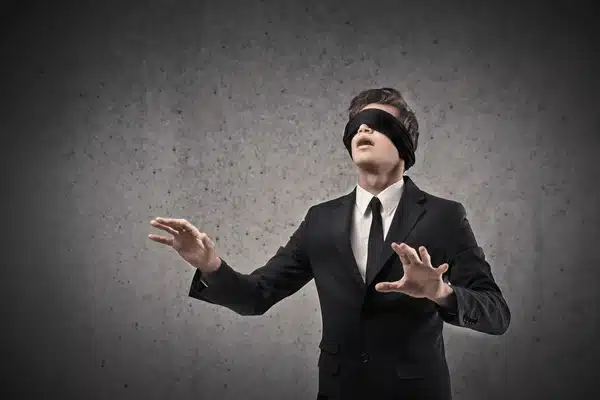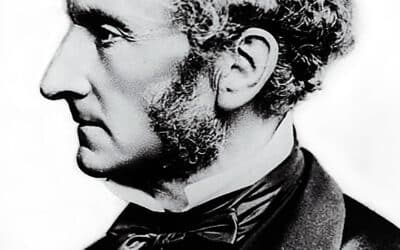Democracy is the theory that the common people know what they want, and deserve to get it good and hard. –H. L. Mencken
This column was prompted by a conversation I had with a few neighbors, whom I do not know, over the Nextdoor.com platform. I thank them for being unwitting grist for my mill. Of course, the names are withheld to protect the innocent.
A woman was upset about something the state government had done. She took to social media to say that this shows that we all need to vote. Always up to a challenge, I decided to weigh in. I asked what good would her plea do considering that one vote almost never decides an election. The chance of any given voter making a difference is virtually nil. How many tied elections have you heard about? In my longish lifetime, no election would have turned out differently had I acted other than I did. Not one.
Did the Nextdoor.com participants not think about the arithmetic? Why agonize over the “choice” they will face on election day? Why lose a wink of sleep?
You might think that since the woman was addressing an audience larger than one, she might respond that this is about more than one vote. I don’t think that works because her audience was too small to make a difference, even assuming everyone she reached votes the way she wants them to — which is unlikely.
That aside, you’d have thought I had insulted the participants’ religion — which in a way I did. Democracy is a religion.
My neighbors’ responses were predictable. What if everyone felt the same way as you? they asked. One person said that if everyone agreed with me, “nothing would get done.” I might have responded, “If I thought everyone was going to stay home, then I might vote if a worthy person were on the ballot. (Not likely.) My candidate would win 1-0. Whoopee! Or: considering what governments do to us, getting nothing done would be a feature, not a bug.
Instead, I asked them: why is voting the only matter about which you ask, “What if everyone thought that way?” The world would be in a sad state if everyone had done what any given person had done over the years. Does an aspiring doctor, lawyer, or plumber ask, “What if everyone chooses what I’ve chosen”? It’s a paralyzing question.
How is the question even relevant? We’re not doing philosophy here. It’s a practical question. No matter what I do on election day, everyone else is going to do what he or she is going to do. They won’t consult me. I guarantee it. So the outcome is going to be the same no matter what I do. In that case, why not do something that makes a difference, like play with the kids, have a conversation, read an article, watch a movie, donate blood, or make some money? In those cases, the means will almost certainly produce the end sought. That’s not the case with voting.
Since my neighbors didn’t want to face the math, I found little interest in the related point that they had no incentive to become truly informed voters. But this is like ignoring the 800-pound gorilla over there in the corner. One person thought it was enough to get the candidates’ position papers and to look at Ballotpedia.com. I said that was hardly adequate. Everything that governments do affects the economy, which means us and our everyday lives. Wouldn’t voters need to study economics before properly judging the candidates? I posed a thought experiment: candidate A favors the minimum wage. Candidate B opposes it. Other things equal, whom do you choose and why? No one answered. Someone said that’s not what matters.
In fairness, I should concede that people have reasons to vote other than to influence the result. People vote because they see it as a sign of good citizenship, even if few people observe it. I suppose people vote simply to express support for a candidate or cause. It’s like applauding at a major league baseball game. Your joining in (or not) doesn’t make a difference. Related to this is the sense that voting is a sort of chipping in on behalf of someone you like. For these people, the point about not individually affecting the outcome won’t apply. Voting makes them feel good.
I submit that all of this confirms what Bryan Caplan says about why democracies consistently choose socially destructive policies. It’s not that special interests control the politicians, who then ignore the voters. That theory overlooks too much, as David Friedman shows in The Machinery of Freedom, chapter 38 (free PDF). He writes:
It seems more reasonable to suppose that there is no ruling class, that we are ruled, rather, by a myriad of quarreling gangs, constantly engaged in stealing from each other to the great impoverishment of their own members as well as the rest of us.
As Caplan argues, the public generally supports destructive policies that harm each member individually. Why? Caplan doesn’t think the problem is rational ignorance that comes from the impotence of one vote. Rational ignorance ought to lead to pro-market choices about half the time and anti-market choices the other half. Instead we find systematically anti-market bias. Since you can’t affect the election and acquiring information is expensive, you may as well vote according to your biases. It will feel good, and it’s cheaper.
Caplan writes, “[C]ompetition impels politicians to heed what voters favor [protectionism, farm subsidies, etc.], not what is best for them.” Remember, politicians want to be reelected or achieve a legacy.
I don’t tell people what to do, so I don’t tell them not to vote. I have no reason to think they’d listen to me anyway.








